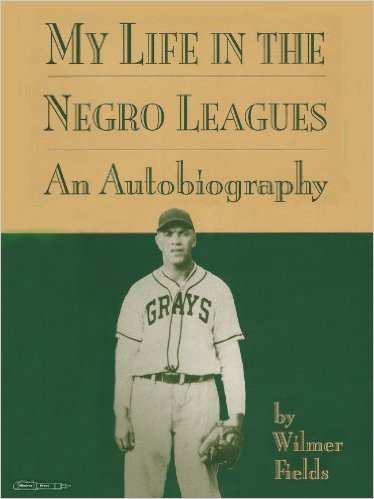
My Life in the Negro Leagues
By Wilmer Fields
Wilmer Fields was a superstar in the Negro Leagues, back when baseball was segregated. After Jackie Robinson broke the color line (as shown in this year’s hit film, “42”), Fields received five different offers to join white teams. But he loved the Negro Leagues and never left. After his retirement, he fought to get the Negro League players covered by Major League Baseball’s pension and health care benefits.
This new edition of Fields’ memoir, with an introduction by baseball historian John Holway, features a new interview with Fields’ son, Billy, who had his own professional sports career in basketball. Fields tells the story of the “dream come true” that “allowed a black country boy” from Virginia to play the game he loved with teammates he admired and trusted.
Fields tells his story, from college football to military service in WWII to hitting .427 in 1956 and being honored as one of the “Black legends of baseball” in 1990. He writes about players like the legendary Josh Gibson and Sam Hairston, who became a White Sox manager. He writes about the game itself, the qualities that make a team and the dedication that makes a world-class athlete, and about the loving support he received from his parents and his wife.
A limited number of first editions, some signed by Wilmer Fields, are available for sale. For more information, contact editor@miniverpress.com
“I believe that being able to do more than one thing in life makes one’s life more secure. Finding more than one way to accomplish any part of your life is an asset. If an individual is sincere in his or her endeavors, determination will overcome the obstacles of life.” p11
“Our closeness carried us through many trials and tribulations” p 13
“The black ballplayers of yesteryear succeeded in spite of many hardships they had to overcome: poor travel arrangements, poor eating habits, prejudice, etc. So if we had received the benefits of today’s players, there’s no telling how good we could have been.” 17
“Playing for the Grays gave me a feeling of security. I always felt that the good would overcome the bad when I was with them. There was a feeling of belief surrounding the team that nothing was impossible. The Grays would turn it up a notch whenever a situation required it. The Grays always believed that they deserved the respect they got form the other teams.” 19
- Wilmer Fields